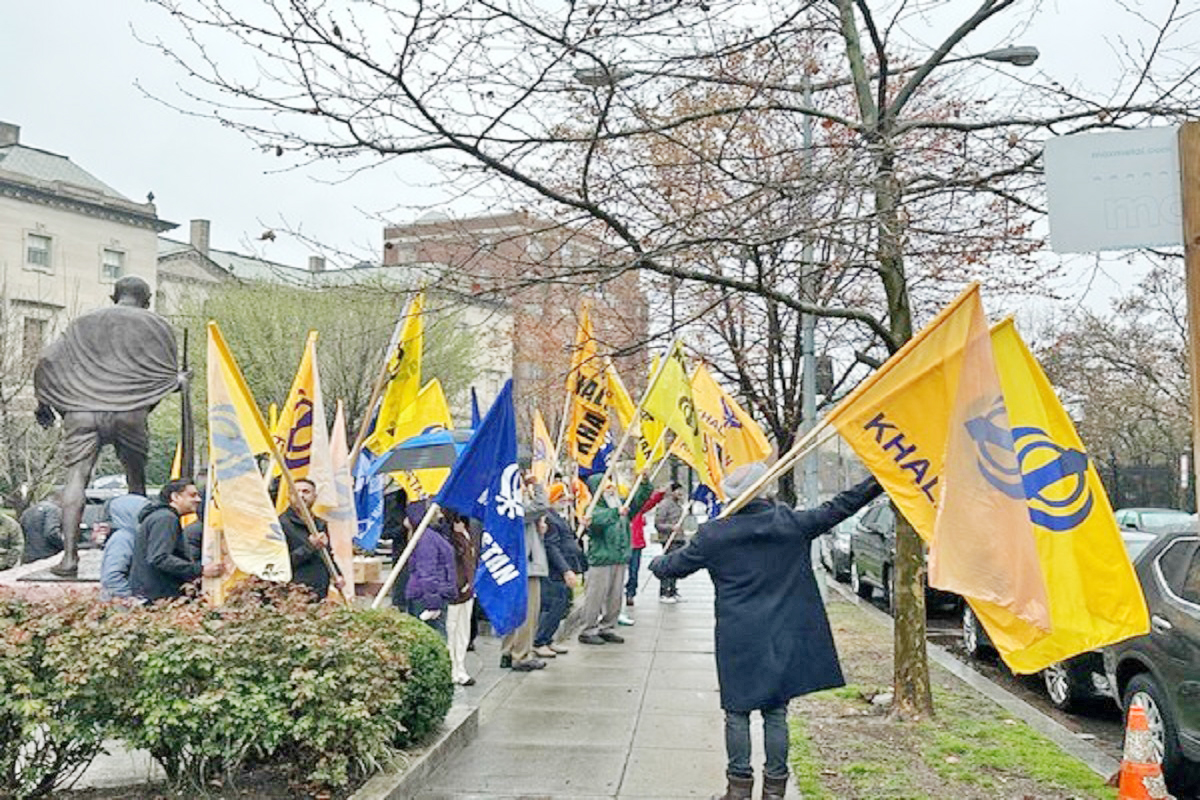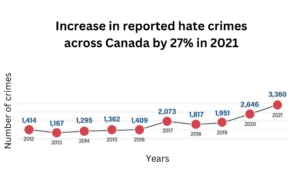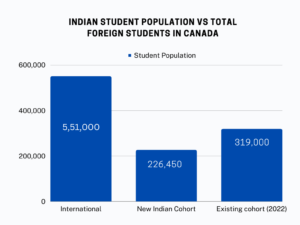
A group of eminent Indian-Americans has condemned the “brazen hateful comments” and a “hostile environment against Hindus” in Canada. The group has asked Ottawa not to “mix freedom of expression with freedom for terror” and endorse hate crimes by being silent on the issue. The demand by Indian-Americans came after an offensive video from a pro-Khalistan group threatening Hindus in Canada to leave the country went viral. “It is concerning to see Khalistani terrorists repeatedly threaten Hindu Canadians by desecrating and scarring Hindu sacred spaces on Canadian soil. Silence in the face of such brazen Hinduphobia—or worse, the justification that this is an acceptable form of political expression—is tantamount to the endorsement of hate crimes,” said Professor Indu Vishwanathan, co-founder and co-director of the Understanding Hinduphobia at the Hindu University of America.
“The Canadian Prime Minister Justin Trudeau should not mix freedom of expression with freedom for terror. He should instead stop radicalisation, and drug gangs and diplomatically handle international situations,” Khanderao Kand, from the Foundation for India and Indian Diaspora Studies (FIIDS), said in a media statement. The Khalistani video surfaced days after Trudeau’s allegations on 18 September of the “potential” involvement of Indian agents in the killing of Khalistani extremist Hardeep Singh Nijjar, a Canadian citizen, on Canadian soil on 18 June in British Columbia.
India angrily rejected Trudeau’s allegations as “absurd” and “motivated.” Though the Canadian government has said that acts of aggression, hate, intimidation or incitement of fear have no place in Canada, there was no action against anyone in connection with the video. The chair of government affairs of the American Association of Physicians of Indian Origin, Dr Sampath Shivangi appealed to US President Joe Biden and the US Congress to intervene and send a message to Canada to protect Canadian Indians, Hindus and thousands of Indian students from the threats. On concerns of spilling this hatred over to the US, Chicago-based prominent Indian American leader Bharat Barai said, “I doubt it will spill over. We should keep calm but vigilant. Khalistanis represent a very tiny misled minority, instigated by ISI and involved in drug trafficking, human trafficking and other violent criminal activities.” Chief editor of Khalsa Today Sukhi Chahal separated the hateful radicals from Sikhism and said: “As a Sikh, I firmly believe in the teachings of our Gurus, which emphasise the unity of all humanity.” Statements like the one from Gurpatwant Singh Pannun, the chief of the banned outfit Sikhs for Justice, don’t represent true Sikh values. Let’s stand together for harmony and respect among all communities, he said. On the recent threats to Hindus and Indians, Sri Iyer, editor of the PGurus portal, a US-based media company said: “There is a thin line between freedom of speech and hate speech and Gurpatwant Singh Pannun crossed it when he threatened Hindu Canadians.”

CANADIAN INVESTIGATION ‘ONGOING’
The Royal Canadian Mounted Police (RCMP) have said that the investigation into Khalistani terrorist Hardeep Singh Nijjar’s killing in Surrey, British Columbia this June is “active and ongoing”. India had designated Nijjar as a terrorist in 2020. The case is currently under the jurisdiction of the RCMP’s Integrated Homicide Investigation Team (IHIT). “We are aware of reports being made regarding the homicide of Hardeep Singh Nijjar. As this remains an active and ongoing investigation, I’m unable to comment on specific evidence collected by IHIT,” spokesperson Sergeant Timothy Pierotti told news agencies on Thursday. Meanwhile, the Guru Nanak Sikh Gurdwara Sahib in Surrey, British Columbia where Nijjar was killed has launched an investigation into how The Washington Post newspaper was able to view security camera footage of the June killing. “We’ve been told by the temple that the video is not for the media, the public because it’s an ongoing investigation. That video won’t be released to anyone. It’s an ongoing investigation,” Gurkeerat Singh, a spokesman for the gurdwara.

STUDENTS’ CONCERNS ON THE RISE
The diplomatic standoff has left Indian students—both in Canada and those who are waiting for their study visas—concerned for their immediate futures and wondering whether they will be affected by the tensions. However, as it stands, the suspension does not affect those who have already been granted visas to Canada or Indian citizens who have applied for Canadian visas. Data from the Canadian government’s Department of Immigration, Refugees and Citizenship Canada (IRCC) made public in 2022 showed that of the roughly 5,51,000 new international students who entered their country that year, the largest cohort was of Indians, with 226,450 students. As many as 319,000 Indian students already lived in Canada as of 31 December 2022, the department said.
The escalating situation between New Delhi and Ottawa has caused particular consternation in Punjab, where Canada has been a popular immigration destination. According to an official at an educational consultancy based in Kochi, since the suspension was announced, the firm had fielded calls from thousands of worried students who were preparing to leave for the upcoming academic session beginning in January. “At this point, there is a great deal of uncertainty. Admissions have closed for the January intake and some have already started the visa process. We can only wait and see how this pans out,” the official said.
REPORTED HATE CRIMES
Year Number
2012 1,414
2013 1,167
2014 1,295
2015 1,362
2016 1,409
2017 2,073
2018 1,817
2019 1,951
2020 2,646
2021 3,360